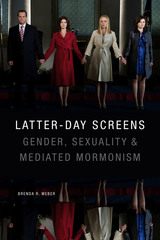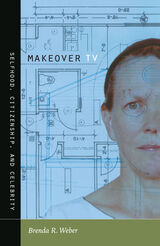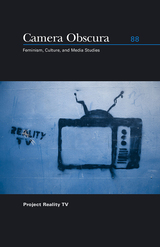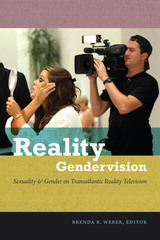

Based on her analysis of more than 2,500 hours of makeover TV, Weber argues that the much-desired After-body speaks to and makes legible broader cultural narratives about selfhood, citizenship, celebrity, and Americanness. Although makeovers are directed at both male and female viewers, their gendered logic requires that feminized subjects submit to the controlling expertise wielded by authorities. The genre does not tolerate ambiguity. Conventional (middle-class, white, ethnically anonymous, heterosexual) femininity is the goal of makeovers for women. When subjects are male, makeovers often compensate for perceived challenges to masculine independence by offering men narrative options for resistance or control. Foregoing a binary model of power and subjugation, Weber provides an account of makeover television that is as appreciative as it is critical. She reveals the makeover show as a rich and complicated text that expresses cultural desires and fears through narratives of selfhood.

Lynne Joyrich is Professor of Modern Culture and Media at Brown University. She is the author of Re-viewing Reception: Television, Gender, and Postmodern Culture. She has been a member of the Camera Obscura editorial collective since 1996. Misha Kavka is Associate Professor of Media, Film, and Television at the University of Auckland. She is the author of Reality TV and Reality Television, Affect and Intimacy: Reality Matters and is the coeditor of Feminist Consequences: Theory for the New Century. Brenda R. Weber is Associate Professor of Gender Studies at Indiana University. Her books include Makeover TV: Selfhood, Citizenship, and Celebrity and Reality Gendervision: Sexuality and Gender on Transatlantic Reality TV, both also published by Duke University Press, and Women and Literary Celebrity in the Nineteenth Century: The Transatlantic Production of Fame and Gender.
Contributors: Pier Dominguez, Jane Feuer, Hunter Hargraves, Jennifer Jones, Lynne Joyrich, Misha Kavka, Michael Litwack, Kristen J. Warner, Brenda R. Weber

Contributors. David Greven, Dana Heller, Su Holmes, Deborah Jermyn, Misha Kavka, Amanda Ann Klein, Susan Lepselter, Diane Negra, Laurie Ouellette, Gareth Palmer, Kirsten Pike, Maria Pramaggiore, Kimberly Springer, Rebecca Stephens, Lindsay Steenberg, Brenda R. Weber
READERS
Browse our collection.
PUBLISHERS
See BiblioVault's publisher services.
STUDENT SERVICES
Files for college accessibility offices.
UChicago Accessibility Resources
home | accessibility | search | about | contact us
BiblioVault ® 2001 - 2024
The University of Chicago Press









